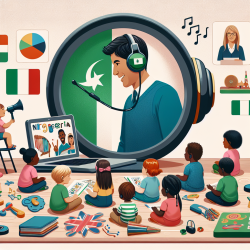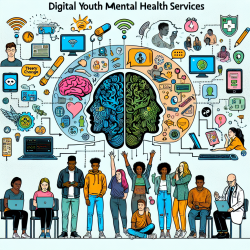The recent study on hearing impairment among preschool children in Nigeria sheds light on the critical need for early detection and intervention in speech and hearing therapy. Conducted at the University of Ibadan, this comprehensive research involved testing 479 preschool children for hearing impairment in a sound-treated environment. The findings revealed that a staggering 86% of the participants exhibited signs of impaired hearing, with a mean hearing threshold of 63.4 dB below normal. This study not only highlights the prevalence of hearing impairment among young children in Nigeria but also underscores the importance of implementing the outcomes of this research to improve practitioner skills and encourage further research in this field.
The study found that the majority of hearing impairments were attributable to infectious illnesses during the first 12 months of life, pointing to the critical window for intervention. Unfortunately, the practice in Nigeria has been to place these children in schools for the deaf, where they have no opportunity to use their residual hearing or to develop speech. This approach, as the study suggests, deprives them of the chance for normal, productive lives due to the lack of a systematic identification program for hearing-impaired children.
As practitioners, it is imperative to recognize the impact of auditory deprivation on children's intellectual growth, emotional maturation, and the development of creative and occupational skills. The study emphasizes that "deafness" in childhood produces multiple handicaps, with the inability to communicate verbally being the greatest. Speech is an acquired skill, learned through hearing, and the degree of handicap produced by hearing loss depends on the time of onset. Therefore, early recognition and treatment of hearing impairment are crucial.
The study's findings offer several actionable insights for practitioners:
- Early Screening and Intervention: Screening for hearing impairment should begin much earlier than currently practiced. Early detection allows for the timely provision of hearing aids, which can significantly minimize delays in the development of speech and language skills.
- Use of Hearing Aids: Children with a hearing impairment of 65 dB can still develop speech and language if provided with hearing aids. This reinforces the need for practitioners to advocate for and facilitate the acquisition and use of hearing aids for children with mild to moderate hearing impairment.
- Customized Therapy Plans: Based on the level of hearing impairment, therapy plans should be customized to meet the individual needs of each child. For those with mild to moderate impairment, an approach centered on home and daily activities could enable these children to develop functional speech within 2-3 years.
- Parental and Caregiver Education: Educating parents and caregivers about the signs of hearing impairment and the importance of early intervention is critical. They should be encouraged to report any signs of hearing difficulties as early as possible.
- Advocacy for Systematic Identification Programs: Practitioners should advocate for the establishment of systematic identification programs for hearing-impaired children to prevent the unnecessary institutionalization and to provide opportunities for normal, productive lives.
Implementing the outcomes of this research requires a multifaceted approach that includes early screening, the use of hearing aids, customized therapy plans, and education for parents and caregivers. By doing so, practitioners can significantly improve the quality of life for children with hearing impairment and facilitate their integration into mainstream education and society.
For those interested in delving deeper into the specifics of the study and its findings, I highly encourage reading the original research paper. It provides a detailed account of the methodology, results, and recommendations that can enrich our understanding and approach to managing hearing impairment in children. To read the original research paper, please follow this link: Hearing Impairment In Preschool Children In Nigeria.
In conclusion, the study on hearing impairment in preschool children in Nigeria presents valuable insights that can transform the practices of speech and hearing therapists. By implementing its outcomes and encouraging further research, we can pave the way for more effective early interventions that promise a brighter future for children with hearing impairments.










